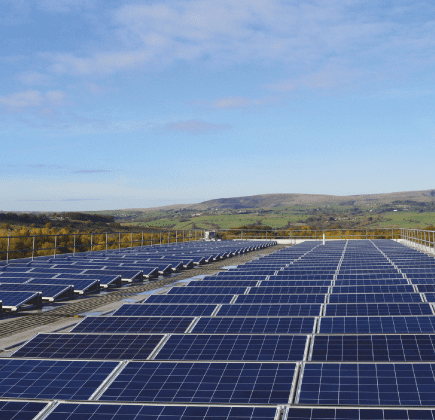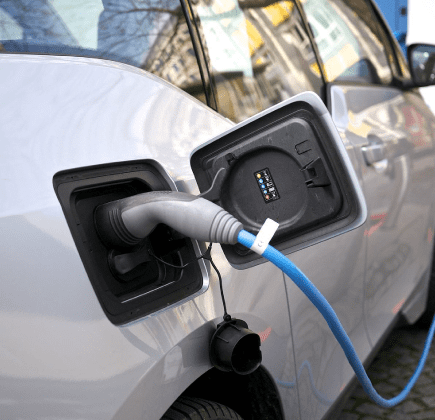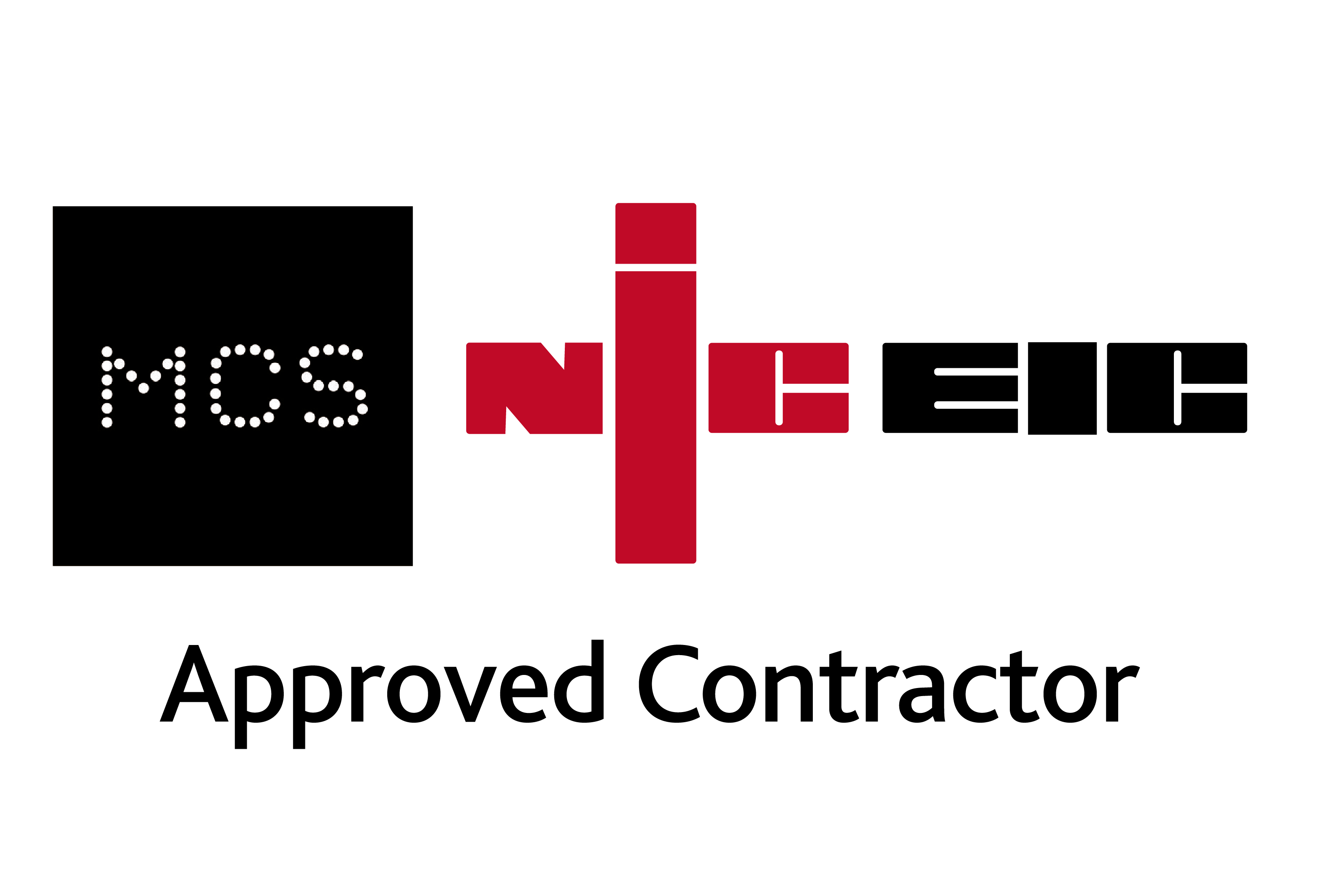
How will the government’s 10 point plan affect your business?
For the vast majority of the UK, 2020 was perhaps one of the most challenging years in recent memory. The twin issues of Covid-19 and Brexit continue to pose significant challenges to businesses, and for many, they understandably remain two of the most pressing items on the agenda. But even while these might be the most pertinent on a day-to-day basis, climate change remains a very real and pressing issue, with its dangers just as tangible and urgent as ever.
After all, while it might seem easy to forget amongst the backdrop of Covid-19 and Brexit, 2020 was a year of particularly extreme weather, with unprecedented floods in February followed by a scorching heatwave in July and August. As a result, climate change is no longer a distant, abstract issue for growing numbers of the population, and there’s increasing public recognition of what needs to be done to combat it – including the dramatic transformation of our transport systems and business energy supplies (which is exactly where we can help with commercial solar panels).
The government first unveiled its 10 point plan a few months ago, in November 2020, but now that we’re into the first few weeks of 2021, a time when many of us will be taking stock of our operations and what lies in store for the year ahead, it seems an appropriate time to look at the government’s plan for dealing with perhaps the most seismic issue on the long-term agenda.
What is the 10 point plan?
The government’s 10 point plan forms a key part of the government’s strategy to tackle the climate change crisis, especially given that it’s now legally obligated to cut carbon emissions to Net Zero by 2050. It comprises a £12 billion stimulus plan designed to mobilise three times as much private sector investment in pursuit of the UK’s 2050 Net Zero target.
The government’s ten key points are as follows:
- Advancing offshore wind
- Encouraging growth of low carbon hydrogen
- Delivering new and advanced nuclear power
- Fast forwarding shift to zero emission vehicles
- Encouraging green public transport, and cycling and walking
- Cutting emissions in the aviation and maritime industries
- Greener and more energy efficient buildings
- Investing in carbon capture, usage and storage
- Green finance and innovation
The plan is heavily geared towards renewable sectors, pouring fresh investment into hydrogen, nuclear, carbon capture, and electric vehicles. The government hopes that it will create 250,000 jobs in the coming years, and the Prime Minister Boris Johnson has optimistically described it as the ‘Green Industrial Revolution’.
What might it mean for your business?
Even though the 10 point plan is primarily focused on the renewable sector, its goal of finding new and effective ways to decarbonise our economy means that it will affect countless businesses across the UK in all kinds of sectors, albeit to varying degrees. Whatever the nature of your own sector, here are some of the most critical ways in which it might affect your own operations.
Transport
The switch to electric vehicles has been on the government’s agenda for quite some time now. The technology is there, but one of the biggest obstacles to widespread adoption from the off has been the relatively sparse infrastructure across the UK. Essentially, while electric vehicles excel in urban environments, as well as making ‘last-mile’ deliveries and other short range journeys, the length of the battery life and the relative shortage of charging points makes long range journeys more difficult.
Building this infrastructure, then, is one of the biggest aims for the government’s 10 point plan. It introduces new investment of £1.3 billion to fast-track the rollout of charge points in homes and on motorways. Plus, over the next four years nearly £500 million will be spent on the development and mass-scale production of electric vehicle batteries.
The problems posed by infrastructure and battery life won’t be solved overnight. However, if the government’s investment succeeds in making serious strides to resolve them, that could make the switch to electric fleets a lot more viable for countless businesses across the UK (including yours) – ultimately transforming the way you transport your staff and assets on British roads.
Investment in green finance
The government is creating a £1 billion Net Zero Innovation Portfolio, intended to “accelerate the commercialisation of innovative low-carbon technologies”. In other words, the idea is to encourage sizeable private investment into the research, development and rollout of world-changing low carbon technologies. What’s more, the plan is to make it as easy and cost-efficient as possible for businesses to adopt these technologies.
This is great news for businesses who might be eager to transform their operations, but worried about the costs involved. Almost every UK company is still feeling the economic squeeze of Covid-19, and that’s likely to make business owners especially wary this year, as there will be an increasing apprehension of making any changes that could impact the profits (and possibly the long-term viability) of their businesses.
The government’s investment into this green innovation fund aims to ultimately eliminate this dilemma, saving business owners from having to make the difficult choice between fulfilling between their social responsibility and preserving their bottom line. Plus, this comes hot on the heels of the International Energy Association’s announcement that solar has now become the cheapest source of electricity in history, having outstripped the costs of coal and gas in many countries. Soon, it may not be long before renewable energy becomes the obvious choice for powering your business.
Corporate Social Responsibility, and the race to Net Zero
By now, you probably know all about Net Zero, which essentially refers to offsetting emissions so that you’re removing just as many emissions from the atmosphere as you’re putting into it. Getting emissions to zero in the first instance is seen as a particularly difficult and for many, unrealistic target, whereas Net Zero is regarded as a far more achievable goal. The government has a legal obligation to cut greenhouse gases to Net Zero by 2050, and that’s the one of the core aims of its 10 point plan.
But as the world is increasingly finding, if we’re to successfully reach that target, it can’t be done solely from the top down – in other words, individuals and businesses are going to need to take concerted, proactive action towards achieving that goal as well.
And with many of these initiatives intended to have a big impact on the general public as well – from changing what cars they drive to the way they heat their homes – public awareness and knowledge of the climate crisis is set to reach an all time high. That means Corporate Social Responsibility will become more important than ever before, as the public expect businesses to demonstrate an appropriate awareness of their own impact on the environment, and commit to mitigating this impact.
Sectors like manufacturing, aviation and maritime will be subject to particular scrutiny, as these are industries in which emissions are especially difficult to control. However, the government hopes that the investment into some of these industries under its 10 point plan will relieve at least some of the most intense pressure.
It’s also worth remembering that a commitment to Net Zero doesn’t necessarily have to be seen as a chore – manufacturing businesses in particular have already seen that it can have an actively beneficial effect on their bottom line. According to an article in The Manufacturer, 40% of manufacturers who put sustainability at the heart of their businesses have enjoyed increased profit margins, and 30% have enjoyed increased competitiveness as a result.
Even if you’re not in the manufacturing sector, there are plenty of ways that you can kickstart your mission to achieve Net Zero emissions, such as: improving the energy efficiency of your buildings, switching to LED lighting and control, replacing outdated equipment (especially energy intensive systems like fans and pump systems).
And of course, another effective way to decarbonise your business is to revolutionise your energy supply – and that’s exactly where we can help here at Low Carbon Energy. We have over 30 years of combined experience, having helped SMEs and large corporations over a wide variety of sectors to transform their business’ energy supply. Feel free to take a look at some of our case studies for just a few examples of our previous projects, or give us a call today on 01282 421 489 to find out what we can do for you!
 Energy Technology
Energy Technology

Powering your present. Preserving your future.
Call us on 01282 421 489

strategy be a priority?










